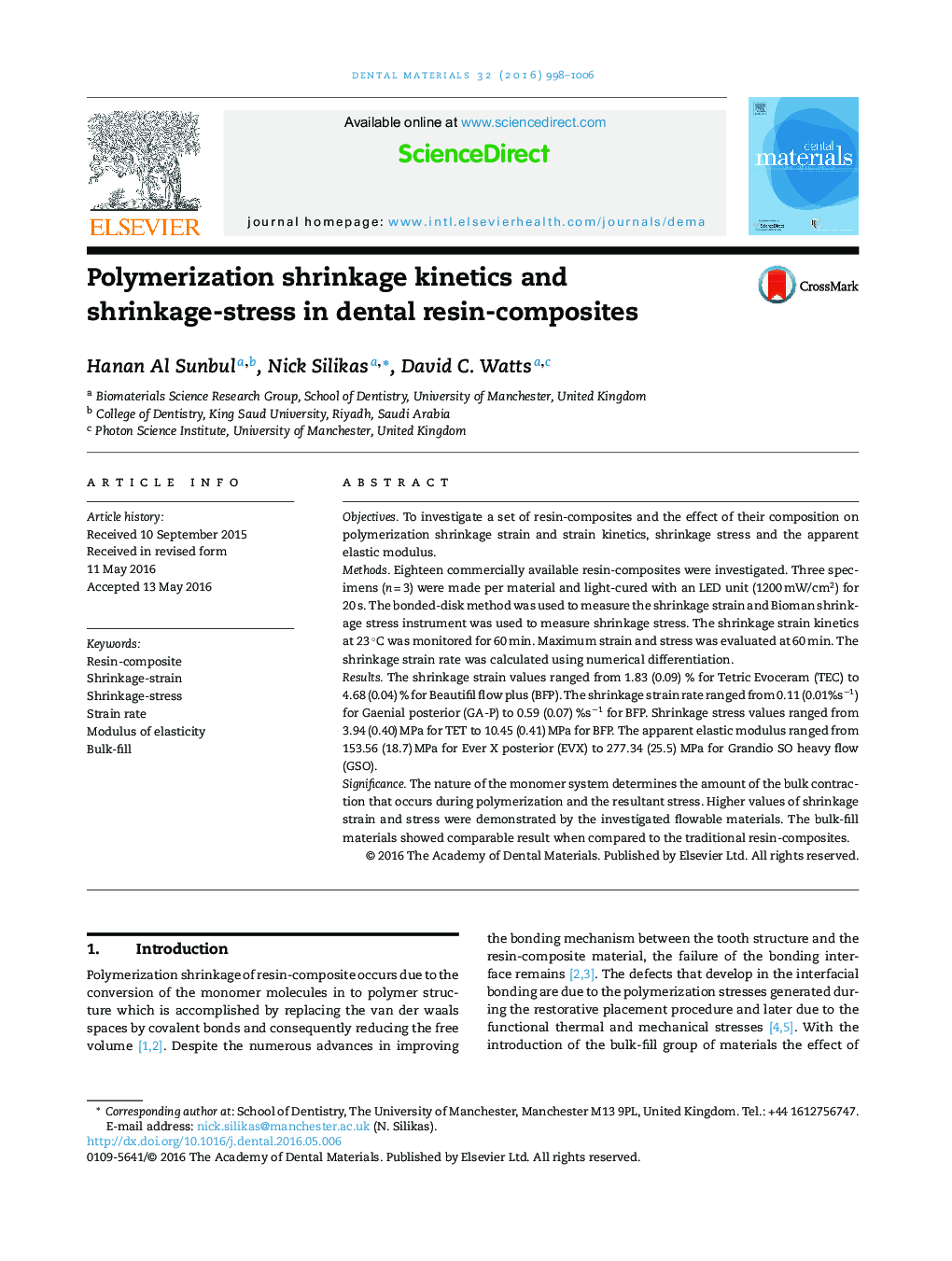| Article ID | Journal | Published Year | Pages | File Type |
|---|---|---|---|---|
| 1420421 | Dental Materials | 2016 | 9 Pages |
ObjectivesTo investigate a set of resin-composites and the effect of their composition on polymerization shrinkage strain and strain kinetics, shrinkage stress and the apparent elastic modulus.MethodsEighteen commercially available resin-composites were investigated. Three specimens (n = 3) were made per material and light-cured with an LED unit (1200 mW/cm2) for 20 s. The bonded-disk method was used to measure the shrinkage strain and Bioman shrinkage stress instrument was used to measure shrinkage stress. The shrinkage strain kinetics at 23 °C was monitored for 60 min. Maximum strain and stress was evaluated at 60 min. The shrinkage strain rate was calculated using numerical differentiation.ResultsThe shrinkage strain values ranged from 1.83 (0.09) % for Tetric Evoceram (TEC) to 4.68 (0.04) % for Beautifil flow plus (BFP). The shrinkage strain rate ranged from 0.11 (0.01%s−1) for Gaenial posterior (GA-P) to 0.59 (0.07) %s−1 for BFP. Shrinkage stress values ranged from 3.94 (0.40) MPa for TET to 10.45 (0.41) MPa for BFP. The apparent elastic modulus ranged from 153.56 (18.7) MPa for Ever X posterior (EVX) to 277.34 (25.5) MPa for Grandio SO heavy flow (GSO).SignificanceThe nature of the monomer system determines the amount of the bulk contraction that occurs during polymerization and the resultant stress. Higher values of shrinkage strain and stress were demonstrated by the investigated flowable materials. The bulk-fill materials showed comparable result when compared to the traditional resin-composites.
